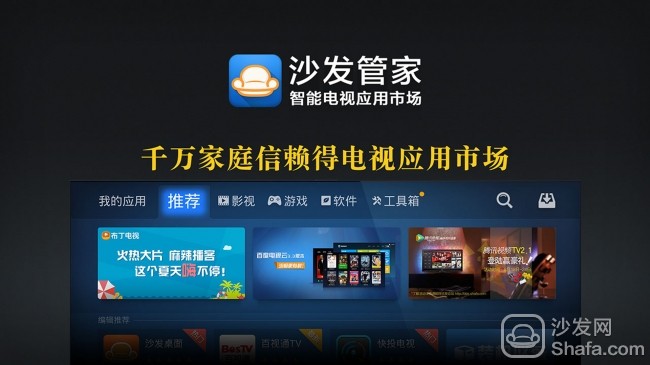Recently, the concept of Gigabit broadband is gradually heating up. Experts have each devised a terrific deconstruction of Gigabit broadband. From technical requirements, to industrial models, to policy support, it took only about a week, and everyone took a long-term The future of things quickly pulled into real life, let some Internet speed fever friendly dreams again and again, in the dream, they play the game no longer have to worry about the shell, and download a high-definition movie, speed is like a clockwork on QQ Just like the “Ha ha†instant message, in short, everyone hopes that the world will become beautiful and rich because of Gigabit broadband. There is no poverty, disease, and war. Humanity is peace and fraternity.
The requirements of human speed on the Internet are endless. Even if I only use the Internet to browse the news and collect materials, occasionally watching old-fashioned TV shows, 4M and 6M are sufficient, but I believe that the higher speed bandwidth is Consumers are sure to have a lot of benefits, and they believe that with the optimization of signals, the improvement of media, and the ever-changing nature of Internet terminals, telecommunications technicians will certainly be able to provide ever-increasing network speeds, for example, from copper cables to fiber optics. The change is a milestone in the field of human communications. Cables travel in metallic media and require large amounts of both distance and speed. Optical fibers are light-conducting tools that use the principle of total reflection in fibers made of glass or plastic. Based on this, optical signals propagate. Medium loss is very low, but also can be free from electromagnetic interference, in fact, from the results of some laboratories, the maximum speed of copper cable can only reach 40M, and the speed of optical fiber has not yet reached the end...
The author fully supports the concept of Gigabit Broadband. However, the problem is that China's existing telecommunications environment simply cannot implement Gigabit broadband, or it is inappropriate, let alone our "Broadband China" strategy is not yet full. In this context, the concept of Gigabit can be mentioned, but it is impossible to use it commercially, and it cannot be said that consumers' money will be ignored. If you push it hard, you will only end up with a tragedy that will help fuel the gap between the rich and the poor in China.
Gigabit broadband, an instant noodle marketing
According to the definition of the Ministry of Industry and Information Technology, Gigabit broadband is a very specific concept: the transmission rate of information from the broadband service access point BRAS of a broadband access service provider to the user terminal reaches gigabit. The translation into the popular description is that the speed of Gigabit only reaches the terminal of the consumer's computer and mobile phone, can be regarded as the target, and those who share the concept, or a community Gigabit statement should not be "honorary" as ambiguous, and It is naked fraud. After all, the Ministry of Industry and Information Technology has long provided for regulations.
In fact, the incidents of fake broadband in China are frequent, not to mention Gigabit broadband, and even the speed within 10M is often not in place. Some netizens ridicule. Now look at the broadband leaflets of telecom operators. It is like enjoying instant noodles advertising. Everyone Knowing that pork ribs and seafood are just a pack of flavored seasonings. Nowadays, Gigabit broadband publicity once again exudes the flavor of “instant noodles†and is full of Chinese and traditional arts and crafts. It is only a project completed in a community in Beijing, and it quickly announced that “China is opening up individual users. The gates of the Gigabit broadband era, and some operators who are not even willing to access optical fiber and optical cats, dare to tell consumers that their homes have been speeding. It is ridiculous and extremely sad.
Behind this phenomenon, it is not only the private enterprises and the secondary operators that are eager for quick success. The deeper reason lies in the fact that China's telecommunications industry is still dominated by oligarchs and the competition is very inadequate. According to the latest statistics, China has 200 million fixed broadband access users, and China Unicom and China Telecom have a combined total of 170 million users, accounting for close to 90% of the total, leaving only 30 million users for other broadband providers. . Recently, these companies joined hands in the concept of “Gigabit Broadbandâ€. They know that they are nonsense. They also know that we know that they know they are nonsense, but the pursuit of differentiation is its only way of life, full of sourness and frustration. In addition, every time a public crisis occurs, the perpetrators are always on a temporary basis, and each time the false-bandwidth incident is carried out by these second-tier operators. Of course, this may also be true.
Bandwidth VS demand, who is pushing who?
In fact, broadband providers have collectively introduced the concept of "Gigabit Broadband," and they are not completely stricken by impatient medical practitioners. They are betting on differentiated routes, and it is also a matter of upgrading service needs in high-end communities. A broadband company COO said in an interview that high-end user markets, such as villas and high-end apartments, have seen 100 million megabytes not meeting bandwidth requirements. This is exactly their chance. But I believe that these high-end residential needs Only an individual phenomenon is not enough to support broadband business people to fight state-owned monopoly telecommunications companies. The bigger market comes from the Internet of Things, big data healthcare, education, and smart homes. Unfortunately, they may not have a solution at all. Even if you live till that time, you may not be able to digest this fat.
Whether it is the expansion of bandwidth to promote the upgrade of user needs, or consumer demand to promote the development of bandwidth, which is tantamount to the problem of chicken eggs, eggs, chickens, but the law of the development of the domestic telecommunications industry, more inclined to use the early stage Bandwidth investment to stimulate user demand, such as now advocated 4G, 5G operators are the first large-scale investment, and then continue to stimulate user demand to upgrade or even coerce consumers into a new era, this approach is quite seemingly mean, but It is not something that companies dare to play. In fact, no company in the world can be as rich and self-willed as China Mobile. After TD-SCDMA has become obscure, they dare to invest heavily in 4G infrastructure and stop GSM network construction. To a certain extent, consumers must switch to the Internet. Now, the second-tier broadband providers also think this way. They also want to use the hype of concepts to accelerate China’s early entry into the “Gigabit Broadband†era so that they can take advantage of the initiative in their differentiated roads, but they do not have the “source of state-owned enterprisesâ€. With continuous financial support, it is clear that Telecom and China Unicom are more suitable than they are for this.
What's more, the Gigabit broadband era is not just an optical fiber. Several cats can handle it. It is a systematic project that requires upstream and downstream linkages. It is precisely because of this that the author is not optimistic and broadband operators are now dominant. In the development of the Mega era, they may have this technology, but without this capital, they are mainly short of money.
Broadband slower: Say good Internet access?
The author does not favor the short-term prospects of Gigabit broadband. In fact, even if the author is optimistic, they have no way to achieve a breakthrough in the short term, not to mention what brought China into the era of “individual users Gigabit broadbandâ€, and now that China Telecom The industry has more important things to do. That is, how to balance the speed of Internet access in different regions of the country, we must know that the vast rural areas still remain at the level of 1M and 2M. Even though some of them have achieved fiber-to-the-village, they often suffer from supporting facilities. Causes the optical fiber to become the decoration, some fellows often tangled, this thin rope, is the dry clothing is good, or is the bundle sack well?

Based on the development of China's telecommunications industry, the author firmly does not support the "Gigabit broadband" project at this stage. This will, to some extent, aggravate the gap between the rich and the poor in Chinese society. In fact, although GoogleFiber project is also a big leap, it is basically in line with the "Broadband America" ​​development strategy. Their goal is to launch Gigabit broadband services in 34 U.S. cities at the same time, covering more than 50% of households in the United States; some developed in Europe. The country also proposed the goal of achieving full speed coverage of 30 Mbps by 2020...but the goal of China’s broadband business is only to target the high-end residential areas and high-end villas, and the test of water can only take place in “first-tier citiesâ€. This is for the entire country. The harmony of the society is not very good: In the high-grade district, watching a 4K HD TV, downloading a movie is just as simple as sending a micro-blog. In the vast rural yard, you can only watch the PPT-style webcast and send a micro-blog. The degree of difficulty is like downloading a movie.
The author suggested that these second-tier broadband companies should give priority to the rural market. After all, the government’s “broadband China†strategy is a bit constipation and requires more support. If they can control resource allocation, they can even resort to the policy of blockbusters. More than Gigabit broadband, but also more social significance.
China's problem has never been a technical issue but a system issue. There have always been too many people, too many people have received too little, and those who get too many people are always going to rob and get too few people. According to the “China Weekly†data, 1% of Chinese households hold 44% of China’s wealth, and some have hundreds of millions of cash in their homes, which can’t cost enough to mold, and some families’ annual income is less than 192 yuan, which is also a social phenomenon in China. The main reason for getting more and more heavy air.
Moreover, I have always believed that life is unfair. This includes not only the hard gaps in family, birth and appearance, but also the access to knowledge and the ability to perceive happiness. If Gigabit broadband projects only appear in high-end communities, This will further widen the differences in knowledge resources between different regions. After all, human access to knowledge has shifted from books to the Internet. Admittedly, pressing this huge social responsibility on the shoulders of broadband providers is a bit cruel, but only hope that they can “do no evilâ€!
Recommended installation sofa butler Download: http://app.shafa.com/

Kuyia Technology Co., Ltd. , http://www.gdhdmicable.com